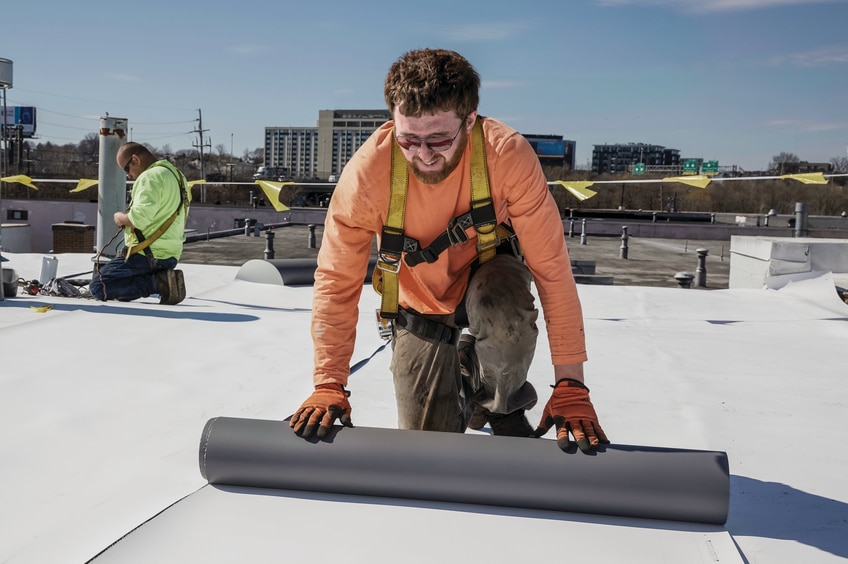Finding the right commercial roofer can be difficult. There are countless companies to choose from, and it can be tricky to figure out who will be best for your building. However, there are resources available to help you select a reputable roofing company and some questions you can ask to guide your decision.
Resources for Finding Reputable Commercial Roofers
There are several ways you can start your search for a reputable commercial roofing company. One of the most tried and true is to ask your network of colleagues, friends, and family if they have a recommendation. Referrals can sometimes be the best way to find a roofing company because you will get an honest review, especially if the person giving that review is someone you trust.
Another place you can find good commercial roofers is through the Better Business Bureau, which rates companies on their reviews from customers. Their website allows you to search your local area for the type of company you're looking for.
Finally, many roofing material manufacturers have a directory that lists contractors that are certified by the manufacturer. If you know what brand of roof you want, or you need a roof repair and know the brand of the roofing material originally used, these directories could be a great way to find a roofing contractor.
Questions to Ask When Hiring a Commercial Roofer
Once you've made your shortlist of commercial contractors, you'll want to ask each company a few questions about their business.
First thing's first: check your state contractors licensing entity. Most states require construction contractors to register with a state agency before they can provide services. Licensed contractors are often required to meet education requirements, as well as insurance and bonding requirements. It's always best to hire a licensed company.
You'll also want to see proof that the contractor has the required insurance and bonding. Most states' required insurance coverages include general liability, automobile, and workers' compensation insurance. These policies keep you protected if the contractor damages your building or property during work. States have different minimum coverages, so make sure the company you hire has adequate coverage for where you live.
Another thing to consider when hiring a roofing company is their experience with the type of roof or roofing service you want. Make sure that the company has worked on the type of roof you own and that they are experienced in the proper installation techniques. An inexperienced company may have problems with the installation, leading to potential warranty issues and leaks. Manufacturer-certified contractors are your best bet, as they are likely to have received training on the type of roofing products you are planning to install and may be more likely to be experienced in the installation of those products.
Other questions you can ask include what warranties the company offers and if they have any references from customers who had similar needs to yours. Follow up with these references to make sure they had a good experience with the roofing company.
The Importance of Manufacturer Designations
Many manufacturers provide specialized certification to companies that are qualified to install their products. While the details of each manufacturer's program may vary, most verify that the companies carry current licenses (in states that require them) and that they meet certain insurance and bonding requirements. They may also check their credit and verify their reputation by calling references and reviewing their company history.
Proper training is always important, and certified companies are provided with the latest information about products, installation methods, and proper repair techniques. This training is specific to the systems and materials that the manufacturer provides.
As an example, GAF Master Select* contractors go through an annual review process that includes making sure they have current state licenses, the necessary insurance coverages, a good reputation with their local community, and a commitment to ongoing training. Only about 1% of roofing contractors in the U.S. are certified as GAF Master Select.
The Bottom Line: Research Is Key
Selecting a contractor for your commercial project is a big decision, but some research can help you find the best contractor for your business. Knowing where to look and what to ask will help you narrow down the field. When in doubt, your best bet is to use seasoned companies, such as GAF-Factory Certified contractors,* that have extensive training and experience with projects like yours.
*Contractors enrolled in GAF certification programs are not employees or agents of GAF, and GAF does not control or otherwise supervise these independent businesses. Contractors may receive benefits, such as loyalty rewards points and discounts on marketing tools from GAF for participating in the program and offering GAF enhanced warranties, which require the use of a minimum amount of GAF products.

